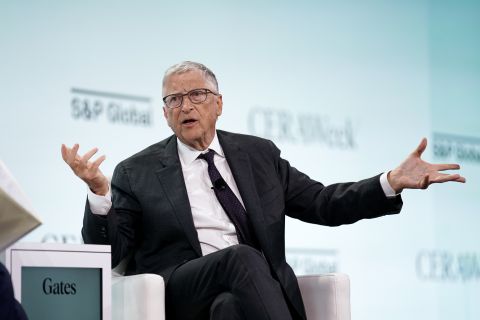It's 3 a.m. Monday in Houston. John Smith, chief executive of a small-cap oil, is awakened by Sean Reilly, one of the company's investor-relations officers for-hire. Reilly is actually employed by a firm of IR doctors who specialize in monitoring clients' stock activity after normal business hours. Shares of Wilcox Exploration Corp. are skyrocketing on World Stock Exchange, driven by investors-many of them using pocketsize computers-who are in the midst of Monday in Calcutta, Cairo, Cape Town, Bahrain, Moscow and across Europe. One is on a train, the Paris-to-Budapest Express. Another is drinking Chianti during lunch at a sidewalk trattoria outside the Coliseum. A docent is between tours of the Hermitage; it is a slow day. The rumor is that Wilcox has made a huge gas discovery in East Texas. Smith is not one to answer rumors, but this one is true; Wilcox executives planned to wait until test results were thoroughly confirmed before reporting the results. And they wanted to secure a few more adjacent leases, too. But the freelance IR technician is importunate. Reilly believes securities law-at least U.S. securities law, and in spirit if not in letter-requires an answer. They devise a plan. Smith changes his LSU 2000 College World Series Championship pajama top for a button-down, tie and suit coat. He moves to his study and turns on the TV-a 56-inch Philips flat-screen that slides down from the ceiling-flips on a computer, adjusts a small camera, and dials an 800 number. He is now speaking live to investors around the world-anyone who cares to tune in-via an Internet channel. One of millions, the cyberchannel is rented, too. A half-hour later, he returns to bed. And, what of the disenfranchised U.S. investors who slept through this spectacular shorting opportunity? Two words: sell order. To all others: day-and-night trading. This could be 2024 and the Boston Red Sox are up 3-0 in their 24th World Series. Or, it could be 2004-seeing how fast Nasdaq, for one, is signing alliances and launching trading of some of its listed stocks on other exchanges. Seven Nasdaq stocks began trading on the Hong Kong exchange in June, in a pilot program: Starbucks, Cisco, Dell, Intel, Microsoft, Amgen and Applied Materials. Trading is from 10 p.m. Eastern to 4 a.m.-just when the java jockeys are clocking in to open their Starbucks stores on Wall Street. And, for the 6 p.m. to 10 p.m. time slot? Honolulu? Auckland? Kodiak, Alaska? (And there is an island, Starbuck, just south of Oahu.) Also in June, eight Japanese companies began trading on Nasdaq Japan, a Nasdaq partnership with the Osaka Securities Exchange. In May, Nasdaq Europe was announced, a partnership of Nasdaq and iX, which will be formed by the pending merger of the London and Deutsche Borse (Frankfurt) exchanges. What's the big idea? Fees for the exchanges and increased access to capital for the stock issuers. The New York Stock Exchange is looking to hook up with markets in virtually every time zone, and Nasdaq's stated goal is to form a global, seamless, around-the-clock, real-time trading platform. Global stock exchanges will be more ubiquitous than McDonald's or Starbucks: they can be everywhere a computer can be. Driving this are the Internet, globalization and the belief that world economies are bound to boom again. "Investor use of the Internet is helping to shatter geographic boundaries, and obviously supports the growth of an investor class. More and more people are relying on the Internet to get stock quotes and other financial information-one, two, three, or more times each day," says Frank G. Zarb, chairman and chief executive of the National Association of Securities Dealers Inc. (NASD). The association founded Nasdaq in the 1970s and has made the floorless exchange the United States' biggest in terms of volume and dollars traded. Of the 1.5 billion page views at Nasdaq.com in the past 12 months, 30% originated abroad. Almost half of U.S. households now own stock, compared with 5% in 1945. Retail investors account for 75% of all Nasdaq trades. And, stock now accounts for 25% of U.S. household wealth. For the first time, thousands of Americans are paying capital-gains taxes that were at one time the bane of only the wealthy. U.S. investors will continue to grow in number, as will the numbers of those around the world. Only 9% of Japanese investors hold securities, Zarb says. But cybertrading is catching on there too: 50 brokerages are now offering online trading. In Canada, individual investors made 29% of Toronto exchange trades last year, up from 15% a year earlier, he adds. And, "we are seeing similar trends in Europe." "Traditional stock exchanges must change or quite simply, they will be gone," Zarb says. Stock issuers may not have a choice but to change, yet which would decline an opportunity to reach a larger investor base? Steve Antry has given all of this considerable thought. The president and chairman of Tulsa-based Beta Oil & Gas is a student of capital markets, founding and nurturing the three-year-old, newly public small-cap with capital he has raised largely by thumbing through a huge and ever-growing capital-provider Rolodex. "Trading worldwide? I'm game," he says. Imagine the capital base. "It would give us access to more capital, and it would give us more options to go after those markets. It could only help." It could help only when there is investor interest in oil stocks to begin with. "For now, for companies our size, worldwide trading sounds good on paper, but until the sector heats up, I don't think it's going to be that impactful." Greg Kerley, executive vice president and chief financial officer for Fayetteville, Arkansas-based small-cap Southwestern Energy Co., has discussed with fellow executives what 24-hour trading may mean to SWN. "I think it could open us to a broader capital base," Kerley says. "I see benefits and disadvantages. That's where the markets are moving. Real-time, 24-hour-a-day trading. That is down the road." He and Antry believe after-hours trading-in the form it exists now-has some growing up to do. It's an issue of liquidity. The megacap Wal-Mart had a small, after-hours trade affect its stock this spring by about 10%, throwing the Blue Chip off-kilter. "It's almost like natural-gas futures trading. During the day, you can get very competitive pricing. After-market, you're not going to get as good a price," Kerley says. When the New York Stock Exchange or Nasdaq close, the specialist or market-maker is gone and so is some of the liquidity of the market. Trading volume decreases. Volatility increases. "For the larger stocks, global trading makes sense. It's hard for me to see it being good for all stocks," Kerley says. "Ultimately it might present us to a broader investor base, but is the increase in investor base worth the volatility? You may need a 24-hour specialist." On the flip side, the advent of global stock-trading can have at least some dilutive effect on a U.S. stock's North American capital base: U.S. investors will have similarly easy access to stocks abroad. But Antry doubts the dilution would be significant. "That's an issue of sector as well. The world has to come to North American-based stocks to trade in the energy sector. Most of them are U.S.- or Canadian-listed. Competition for equity dollars out of London or Sydney wouldn't worry me." Kerley agrees. "There are different ways of investing outside the U.S. now, for those who wish to do so." BETA is a Nasdaq National Market stock; SWN is not. Same game, but American and National leagues. All of Nasdaq's running about is putting the onus on the New York Stock Exchange to co-list and co-trade with exchanges around the world. Otherwise, NYSE-listed stocks like SWN must resort to continued multiple listings or be shut out. The NYSE's Rule 500 makes it impossible for issuers to leave the NYSE. Exceptions are if the NYSE delists the stock or the issuer is dissolved, such as by merger. And, Zarb has made his intentions clear: "When all is said and done, we want to be able to say to companies anywhere in the world that when you list on Nasdaq, you get the world...That's where we are headed." "Exxon Mobil go to Nasdaq? That will never happen," says Gregory B. Barnett, president of Denver-based investor-relations and management consulting firm EnerCom Inc. "The ultimate listing is the NYSE. You're not going to see an NYSE-listed company go backwards." With globalization of stock exchanges, the need for duality of listing is gone, Barnett says. A concern with trading in multiple time zones, though, is the fact that speculators find where the weaknesses are in the movement of a stock. "So, if you have a North American and Australian stock-exchange alliance, someone can put some news out in Australia during the night here and, when U.S. markets open, that news is already old." There will ultimately be one global system and everything else will be a subset of it, he believes. Call it World BigCaps, World SmallCaps and World Bulletin Board. A problem can be the multitude of accounting systems and rules. "There's going to be a lot more opportunity for fraud. There's going to be a lot more opportunity for stock manipulation," he says. The U.S. Securities and Exchange Commission, the Federal Accounting Standards Board and their international counterparts are attempting now to create rules and regulations to standardize financial reporting, in part to help thwart fraud. The NYSE and Nasdaq are pursuing links with other exchanges carefully. U.S.-based public companies are rigorously bound to securities law and accounting rules. But what do day-traders know of Malaysian disclosure law? To trade globally now, without a hyperfriendly broker, there are the ECNs, or electronic communications networks, such as the Canadian Dealing Network (CDN), Bloomberg Tradebook and MarketXT. ECNs privately match buy and sell orders of brokers, institutions and individuals, in specific quantities at specific prices. Zarb counted nine a year ago. There are fewer now due to consolidation among them, says Vic Hughes, chief financial officer for Mount Pleasant, Michigan-based Gastar Exploration Ltd. Gastar, which explores for gas in the Powder River Basin in Wyoming, the East Lost Hills Field in California's San Joaquin Valley and the Gunnedah Basin in Australia, is listed on the CDN (as GAST), an ECN operated by the Toronto Stock Exchange. Management of the C$100-million market-cap likes the listing because it is associated with a respected exchange and "as a company I don't want to deal with anything less." It is less expensive than an NYSE listing, for example. But, "that's not the major issue. If you get on an inexpensive exchange that doesn't serve your purposes, that doesn't do anything for you," Hughes says. "Where we are suits us now, but our plan is to continue to grow the company and list on more-senior exchanges, like Toronto and Nasdaq." That may happen anyway. Nasdaq is pursuing listing of ECN stocks on its Nasdaq InterMarket exchange. With all this change, brokerages will have to change as well. Some are already online, such as Charles Schwab, and have switched to charging one fee per transaction (fee-based), rather than a fee based on a percentage of the transaction (commission-based). Many of the big houses, though, have not switched. Just 30 years ago, all brokerages charged the same commission rate to handle stock transactions. Which firm one used amounted to a congeniality contest. Some in the financial industry claimed, however, that Wall Street would collapse when this fee-fixing was outlawed. Markets did not collapse. "Change creates uncertainty and the boom of the 1990s has been so good that the retailers are reluctant to change," Hughes says. "If you have structural changes in the market and you have a market downturn, what does that mean?... "For a significant number of stocks, 24-hour trading won't have an impact. It's hard for me to believe we are going to have a huge demand for our stock at three in the morning in Hong Kong." Barnett says, "I don't see companies, in the next year, gearing their IR departments to run on shifts. Companies will continue to do what they're doing now, which is have regular office hours. Even London's public companies keep regular hours." Company web sites can provide around-the-clock access to information, he adds. "And you're not usually responding to rumors anyway." Antry won't lose any sleep over it. "It would be quite a while before I would be concerned with anything other than what's happening with Nasdaq." Zarb says, "I am more convinced than ever that the stock market in the new millennium will be available to anyone, anywhere in the world, 24 hours a day. Today, trades may be made on a home or office computer, but tomorrow, they are just as likely to be executed on a digital television, cellular phone, and other hand-held or household devices." So one day in the not-too-distant future, one can still buy Texaco, Starbucks and McDonalds when the station, café and drive-thru are closed. And, it will be the night-shift IR officer or mutual-fund managers who will be looking for double espresso. How Stock Exchanges Across the Globe are Reshaping Exchange Comments United States New York Stock Exchange Discussing 24-hour trading of the world's biggest stocks with the Tokyo, Hong Kong, Australia, Toronto, Bolsa Mexicana (Mexico), Bolsa Sao Paulo (Brazil) and Euronext (Amsterdam, Brussels and Paris) exchanges. Will pursue intertrading of stocks with other exchanges that will adhere to disclosure, transparency and other standards. The member-owned exchange may become a public company, itself, later this year. Nasdaq In alliances with or discussing alliances with iX (London and Frankfurt), Australian, Montreal, Osaka (Japan), Hong Kong and various electronic communications networks (ECN) exchanges. Pursuing development of markets in China, Latin America and the Middle East. Being spun off from National Association of Securities Dealers Inc., and converted into a for-profit organization. Nasdaq-Europe Will be a 50-50 partnership of Nasdaq and iX, which is to be formed by the merger of the London Stock Exchange and Deutsche Börse (Frankfurt). To be online by first-quarter 2001. Initially to be home to several hundred high-growth and technology stocks from the London exchange's existing techMark and the Frankfurt exchange's Neuer Markets. Nasdaq-Japan Operating. Section of the Osaka Securities Exchange will trade stocks of mainly high-tech start-ups and for the largest U.S. Nasdaq stocks with name recognition, such as Microsoft, Intel, Yahoo and Starbucks. Eight companies, all recent IPOs, were trading at press time. Goal is to have more than 120 listed companies in a year, depending on market-quality conditions. Nasdaq-Hong Kong Pilot program with the Hong Kong exchange. Eventually will quote and trade some of the largest Nasdaq stocks with strong business interests in Asia. Trading at press time were Amgen, Applied Materials, Cisco, Dell, Intel, Microsoft and Starbucks. Nasdaq will co-list some Hong Kong stocks later this year. Nasdaq Canada To be a Nasdaq alliance with the Montreal exchange, which no longer trades securities due to a restructuring of Canadian equity markets in 1999. Nasdaq Canada will trade high-growth Canadian IPOs and U.S. securities. Nasdaq Middle East Long-term Nasdaq plan to develop a Middle Eastern stock market and link to it. Could be anchored by Egypt, Israel and Turkey. Nasdaq Latin America Early development stages. Nasdaq China Early discussion phase. Nasdaq has opened an office in Shanghai. Nasdaq Australia Under discussion. Nasdaq would co-list and co-trade stocks with the Australian Stock Exchange. Nasdaq Intermarket Formerly known as Nasdaq Third Market. Renamed and adds trading of three electronic communications networks (ECNs), which are private stock exchanges: Bloomberg Tradebook, Brut and MarketXT. Already trades NYSE listed stocks. Nasdaq pursuing agreements with other ECNs to join. American Stock Exchange Merged with Nasdaq in 1999. Canada Toronto Stock Exchange In talks with NYSE and Nasdaq exchanges. Trading in senior stocks only, since 1999 restructuring of Canadian stock exchanges. Montreal Exchange Discussing alliance with Nasdaq, to form Nasdaq Canada. Currently deals in futures and options trading only, since 1999 restructuring of Canadian stock markets. Canadian Venture Exchange Pursuing an alliance with Nasdaq. The result of the merger in 1999 of the Vancouver and Calgary stock exchanges. Assumed trading of all Canadian junior stocks, including those that were listed on the Toronto and Montreal exchanges. Canadian Dealing Network No merger discussions have been reported. Run by the Toronto Stock Exchange. One of up to nine electronic communications networks (ECNs), which are private stock exchanges. Others include Bloomberg Tradebook and MarketXT. Vancouver Stock Exchange Dissolved. Merged with Calgary exchange in 1999. Now known as Canadian Venture Exchange for junior stocks. Senior stocks moved to Toronto exchange. Alberta Stock Exchange Dissolved. Merged with Vancouver exchange. Now known as Canadian Venture Exchange for junior stocks. Senior stocks moved to Toronto exchange. Latin America Bolsa Mexicana Discussing alliance with NYSE. May play a role in Nasdaq Latin America alliance. Sao Paulo Bovespa Discussing alliance with NYSE. Already linked to the London, Lisbon and Argentine exchanges. May play a role in Nasdaq Latin America alliance. Europe iX Expected to open in early 2001. New exchange resulting from the pending merger of the London Stock Exchange and Deutsche Börse (Frankfurt), creating the largest European stock market. iX will have 53% of European stock-exchange trade volume, 45% of Europe's top 300 companies, and, through Eurex, the biggest derivatives market worldwide. Has allied with Nasdaq, Madrid and Milan, already. Pursuing other alliances or mergers . iX is short for "international exchange." Euronext Alliance of the Amsterdam, Paris Bourse, and Brussels stock exchanges. Discussing alliance with NYSE. London Stock Exchange Expected to merge this fall with Deutsche Böerse (Frankfurt) to form iX, which will ally with Nasdaq to form Nasdaq iX, an exchange that will trade U.S., European and some Japanese stocks as soon as 2001. Frankfurt (Deutsche Böerse) Expected to merge this fall with London Stock Exchange. See above. Milan and Madrid Has agreed to join iX, the new market that will be formed by the merger of the London and Deutsche Börse (Frankfurt) exchanges. Amsterdam, Paris Bourse, In alliance to form Euronext, which is discussing an alliance with NYSE. Brussels Middle East/North Africa United Arab Emirates Forming a stock exchange that will be part of a tax-free offshore financial center off the coast of Abu Dhabi, the UAE capital. Egypt, Israel and Turkey Could be part of a long-term Nasdaq plan to develop Nasdaq Middle East. Algeria Seeking development of an Algiers-based stock exchange. Asia/Australia Tokyo Linked with the NYSE, South Korea, Thailand, Philippines and Singapore. Osaka (Japan) Section will trade Nasdaq stocks-mainly high-tech start-ups and the largest U.S. Nasdaq stocks with name recognition, such as Microsoft, Intel, Yahoo and Starbucks. Hong Kong Trading seven Nasdaq-listed stocks already (Amgen, Applied Materials, Cisco, Dell, Intel, Microsoft and Starbucks). Also discussing link/alliance with NYSE. Australian Stock Exchange Discussing alliances with Nasdaq and NYSE. THE FRAC JOB Do the math: is 21/32 more or less than 11/16? Time's up. The stock has already moved again. The latter is larger-4.8% larger. To the investor holding 100,000 shares of this stock, the gross gain on selling the whole position would have been $3,125-the stuff of which day-trading is made and not a bad return at the rate of a blink of an eye. The days of these mathematical marathons are numbered-to the nonprofessional investor's relief, and in part specifically to aid these moonlighting securities dealers. Already, stock-price watchers can see share prices in decimals, rather than fractions, on the Internet and in newspapers nationwide. This summer, the Associated Press is converting to an all-decimal format in the stock tables it feeds its members and clients. The U.S. stock exchanges say they will do the same, at least on a pilot basis, in September, and possibly price in as small an increment as pennies. Bill Mintz, spokesman for large-cap oil Apache Corp., said conversion to decimalization "isn't really a question of support. It is just a matter of time. Decimalization will happen."
Recommended Reading
Tangled Up in Blue: Few Developers Take FID on Hydrogen Projects
2024-04-03 - SLB, Linde and Energy Impact Partners discuss hydrogen’s future and the role natural gas will play in producing it.
Identified Need: Hydrogen Safety Standards in an Emerging Sector
2024-03-22 - Establishing fire protection measures remains critical for industry growth.
Energy Transition in Motion (Week of April 19, 2024)
2024-04-19 - Here is a look at some of this week’s renewable energy news, including the latest on global solar sector funding and M&A.
Energy Transition in Motion (Week of March 28, 2024)
2024-03-31 - Here is a look at some of this week’s renewable energy news, including proposals submitted to develop about 6.8 gigawatts of wind projects offshore Connecticut, Massachusetts and Rhode Island.
Bill Gates: ‘A Heroic Effort’ is Beginning, but Climate Goals Still Won’t be Hit
2024-03-26 - Bill Gates said during CERAWeek by S&P Global that the energy transition was picking up speed but still wouldn’t be able to achieve the climate goals established under the Paris Agreement of 2015.





